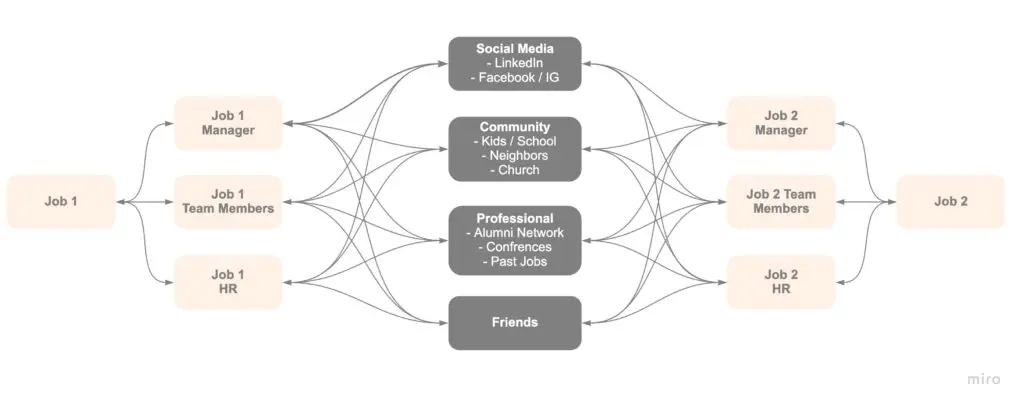Ever wonder how employees get caught working two jobs? We know getting caught can be scary, even when double employment is allowed by company policy. Friends and colleagues will wonder if what you were doing is really ok? If you didn’t follow 12 rules for working two WFH jobs, you risk someone telling on you as suggested by the NYT Ethicist.
Since we don’t know how managers will react, it’s best to keep quiet and avoid tattle-telling on yourself. Working for another boss is likely frowned upon by your current manager. Most bosses will think, “if you have extra bandwidth, then I have some extra work for you”. Also, “we don’t have the budget for that promotion you wanted, even if you totally killed it with the extra work.” As you can see, it quickly devolves into a lose-lose situation.
In this article, we’ll touch on several different situations, but keep in mind your specific situation is unique to you. Only you can determine all the possible outcomes and impacts on your earning potential. You, and only you, can prevent a career forest fire by not talking about two jobs, even with family. Don’t have an ego. Get what you want by giving people what they want. Manage your external perception smartly.
How Do Employees Get Caught
We combed through several situations where employees got caught working two jobs. The common theme is these less-sly employees were caught through unforeseen, shared connections. These common connections are not what you think. They are not always the employers or HR finding out, but rather friends, co-workers, daycare parents, clients, or some third party getting jealous and deciding to notify your employers.

For example, a co-worker at your second job, Lisa, was talking to her friend Max about a new restaurant, the exact same restaurant that you recommended to Lisa. Lisa mentioned how you (the double-timing coworker) took your boyfriend, Jefferson, to the restaurant last week and loved it.
Meanwhile, Max also remembered hearing the exact same restaurant recommendation that a co-worker (yep, that’s you again) went to this weekend with a boyfriend named Jefferson. Max and Lisa, now intrigued, wondered if this was the same person. They’ll start asking around, and a cascading sequence of events occurs where people will ask the same question to confirm their suspicion. Does this sound far-fetched? If so, then you are letting your guard down.
The Internet has made the world very small
Facebook put out research that shows only three and a half degrees of separation are between us and anyone else. It does not sound like a lot of separation, does it? While those close connections may exist, finding out who they actually are is not that easy. You’d have to friend everyone and actively seek those common links. In our case, we want to minimize those instances that might lead to that common connection discovery.
How To Minimize Chances Of Getting Caught
It sounds like common sense, but to minimize the chances of getting caught, we need to minimize people making common connections that come back to bite you. As humans, we are ego-driven and love to talk about ourselves. Oftentimes, we’re unconsciously oblivious to it. Career networking experts tell us to do so by building rapport with people and tricking them to talk about themselves. We have to act with purpose and keep this natural tendency in check or risk revealing too much about ourselves.
Don’t reveal your metadata that can lead back to you
If you’ve ever watched any crime show, you’ll know how profilers connect the dots and build your profile. The school you went to, how many kids you have, where you grew up, the neighborhood you live in, past jobs, or even what you did this weekend. By itself, this information does not tell much about you. But in aggregate, these data points become very revealing and start to pinpoint you. This is what we want to avoid. Check out these two examples. Which one do you think is easier to lead back to you? What can you do to throw someone off the scent?
Sample 1 – Hi I worked for the past 5 years in finance and have an MBA at Northeastern. I’m married to my husband Jeff, and we live in Palo Alto with my kids 3 and 8 years old. I also have worked at Intel and HP. In my free time, I like to swim, hike and bike, and now practicing for the half ironman in Kona.
VS.
Sample 2 – Hi I have experience working in finance and went to a small college out east. I currently live in the Bay Area, South Bay. It’s hard to find time to do anything with my two kids. I wish my kids were old enough to move out for college but they still have a few years to go. Whenever I get some free time, I like doing outdoor activities and spending time with my kids. In the past, I worked at companies that make parts for IoT devices.
Avoid being caught with passive avoidance
By passive, we mean to set it and forget it. One thing you can do is hibernate your LinkedIn and control view access to your social networks. Better yet, go to the extreme and get off all social media and erase your online presence. The smaller your surface areas, the fewer chances you can get caught.
Avoid being caught with active avoidance
The next step is active avoidance. This includes taking steps to add layers of misdirection and doing some work to protect yourself during every interaction. When asked, don’t voluntarily reveal any identifiable information. You can keep it vague and still answer the question. What school did you go to? “Oh, I went to a small college down South.” We are not lying, just not giving extraneous information that might track back to us.
Create A Fake Profile Of Yourself Before Entering The “Field”
Take a page from your favorite espionage movie and prepare a profile for yourself. Create a profile that is truthful but also re-directs and does not reveal key data about yourself. The more confident you are in your story and responses, the fewer questions people will ask. If you have to pause to think for an answer, people will start to think twice about your answers. Have well-prepared answers to common questions. This is no different than preparing for an interview. This pre-work will ease your mental strain when answering. Lies are always found out because it’s impossible to keep track of what you’ve said and to whom, so tell the truth but have a solid backup story to misdirect. Additionally, use a different phone number and email when applying for your second job.
Check out Scientific American’s 18 attributes of highly effective liars. While we never condone lying, you can, however, avoid how other people may perceive liars by avoiding being labeled as one.
Example Profile:
| Profile Category | Example Truth – Job 1 | Example Misdirection – Job 2 | Comments |
| Hometown | Palo Alto | Bay Area – South Bay | Generalization |
| School / Education | Texas Tech – MBA | Some small college you may not have heard of. | Misdirect and indirectly answer |
| Job Industry | Finance for 8 years | I jumped around a bit but am currently in finance. | Exact vs. generalization |
| Family /Relationship Status | Single | In a serious relationship | Unverifiable, even if you slip up, make up a break-up story that “you rather not talk about”. Good excuse to take a few days off. |
| Hobbies | Swim, Bike, Run | Like to spend time outdoors when you can. Hiking with friends. | Answers the question and is generic enough that people won’t ask specifics. |
| Dreams | Make enough money to not work here anymore. | You like baking and want to start a bake shop one day. |
People like to talk about their family, occupation, recreation, and dreams and often use these talking points to initiate small talk and build rapport. Here’s a great youtube video of this method explained in more detail. Having these questions prepared about yourself can ward off 80% of the most common questions.
Do some research about your “adversaries” and the people you are working with. Do some offensive reconnaissance and see if there are any potential connections to your network with the people you will meet. Ward off any mentions of those connections. How can you use this information to social engineer them to get things to work in your favor?
Takeaways on how employees getting caught working two jobs
Does this sound like a lot of mental gymnastics? To some, yes. To others, this is a fun challenge. There are a lot of ways employees get caught working two jobs. Being Overemployed is not a lifestyle for everyone. But for those who are willing to be a bit mindful and are not afraid to do some pre-work, the upside is getting the two paychecks on payday. A little preparation goes a long way. As with everything, do your own research and know your comfort zone. Comfort and confidence will come with knowledge, research, and preparation.
Remember Rule #1: Do not talk about working two jobs. Welcome to the Overemployed spy games.
